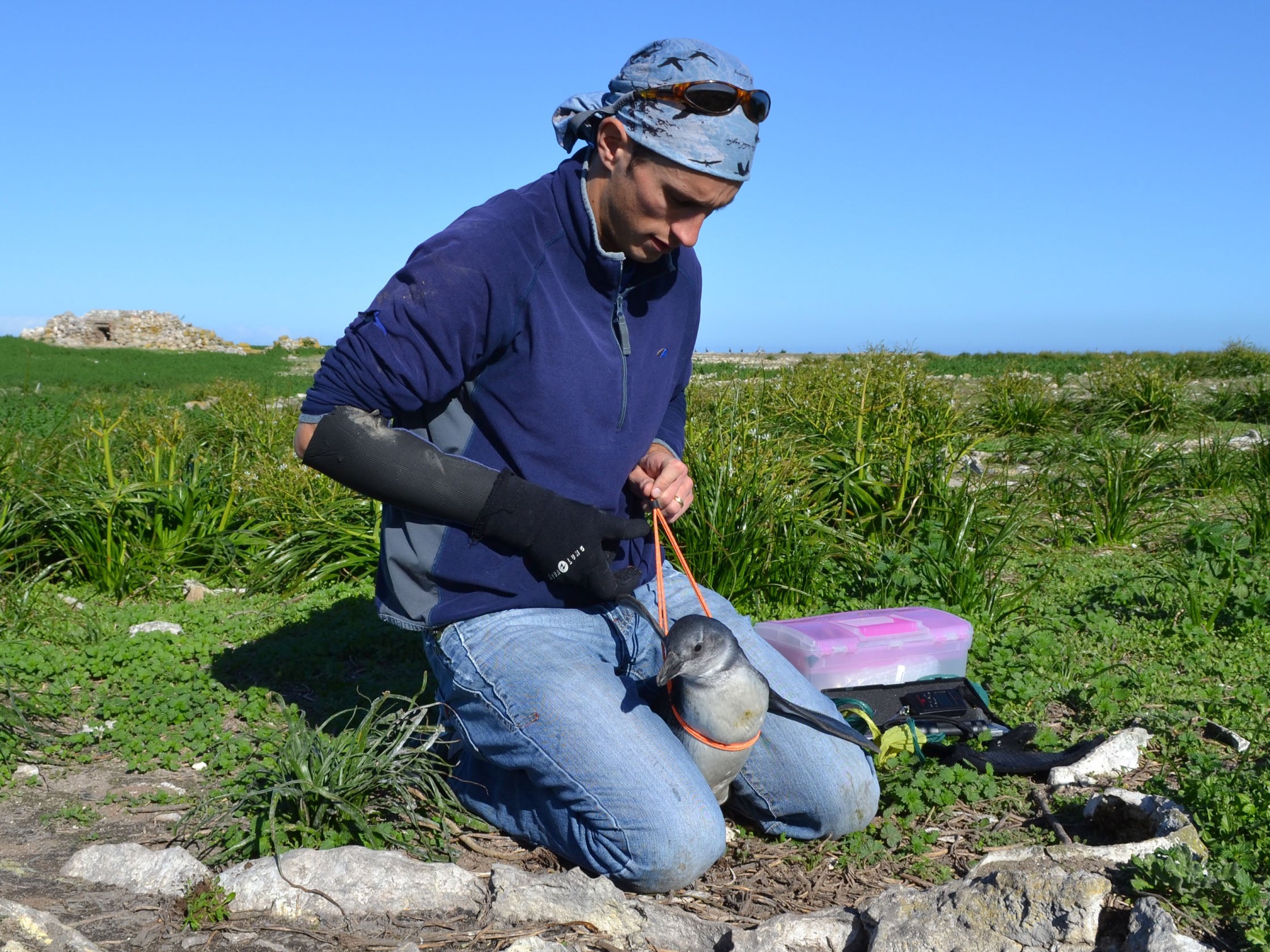Endangered penguins hunting for fish in wrong place after climate change creates 'ecological trap'
Global warming is having different effects on different animals and plants so the tell-tales signs used by African penguins to find their prey no longer point in the right direction

Your support helps us to tell the story
From reproductive rights to climate change to Big Tech, The Independent is on the ground when the story is developing. Whether it's investigating the financials of Elon Musk's pro-Trump PAC or producing our latest documentary, 'The A Word', which shines a light on the American women fighting for reproductive rights, we know how important it is to parse out the facts from the messaging.
At such a critical moment in US history, we need reporters on the ground. Your donation allows us to keep sending journalists to speak to both sides of the story.
The Independent is trusted by Americans across the entire political spectrum. And unlike many other quality news outlets, we choose not to lock Americans out of our reporting and analysis with paywalls. We believe quality journalism should be available to everyone, paid for by those who can afford it.
Your support makes all the difference.Endangered penguins are hunting for fish in the wrong place because climate change has prompted sardines and other prey to move to another part of the ocean, researchers have discovered.
The plight of the African penguin – found in Namibia and South Africa – highlights the dangers to wildlife of the sudden rise in temperature caused by human-induced global warming.
For the penguins have learned to look for places with lower sea temperatures and large amounts of a type of chlorophyll. These are tell-tale signs of plankton and, in turn, the fish that feed on them.
These once sure-fire ways to find large shoals are now leading the penguins into an “ecological trap” that is pushing them closer to extinction.
And the situation has been made worse by industrial-scale fishing and a raft of other problems, mostly caused by humans.
According to the International Union for Conservation of Nature (IUCN), there are about 80,000 adult African penguins left. But oil slicks in 1994 and 2000 killed some 30,000 birds and the death toll “may increase” if planned harbour developments go ahead, the IUCN says.
In the new study, researchers from Exeter and Cape Town universities tagged 54 juvenile birds from eight different colonies to find out where they go to look for fish.
The areas they chose were once rich hunting grounds for sardines and anchovies.
But changes in water temperature and salt content have prompted the fish to move hundreds of kilometres away.
One of the researchers, Dr Richard Sherley, of Exeter University, said this meant the tell-tale signs used by penguins to find fish “now put them in danger”.
“These were once reliable cues for prey-rich waters, but climate change and industrial fishing have depleted forage fish stocks in this system,” he said.
“Climate change and fisheries are transforming the oceans, but we don't have a complete understanding of their impact.
“Our results support suspending fishing when prey biomass drops below certain levels, and suggest that mitigating marine ecological traps will require major conservation action.”
The problems in finding food have produced low survival rates among juvenile African penguins, previously known as jackass penguins.
It is thought breeding numbers are about 50 per cent lower than they would be if the birds were able to find enough to eat.
Dr Stephen Votier, also of Exeter University, said the ability to track the penguins movements was a “crucial tool in conservation biology”.
“This ecological trap was only discovered when young penguins were tracked from multiple colonies,” he said.
“This highlights the power of studying animal movements, particularly for long-lived marine species like penguins.”
The results of the research were published in the journal Current Biology in a paper called Metapopulation tracking juvenile penguins reveals an ecosystem-wide ecological trap.
According to the IUCN’s Red List of endangered species, the African penguin is “undergoing a very rapid population decline, probably as a result of commercial fisheries and shifts in prey populations”.
“This trend currently shows no sign of reversing, and immediate conservation action is required to prevent further declines,” it adds.
Join our commenting forum
Join thought-provoking conversations, follow other Independent readers and see their replies
Comments